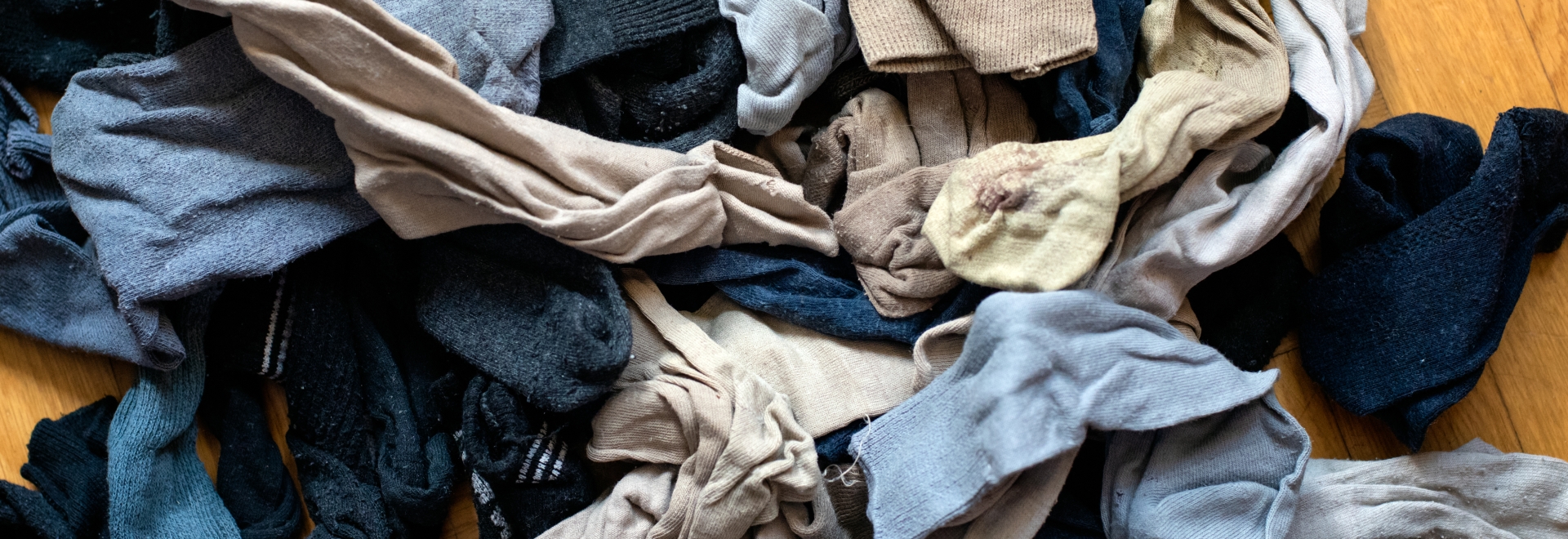
Pumpkin spice candles and an apple pie baking in the oven—ahh the scents of fall! But wait—where’s that dirty sock smell coming from?
Your heat pump has started up for the first time and that musty, unpleasant smell has just turned your festive fall home into a gym locker room. No, your spouse's smelly gym socks didn’t somehow get sucked into your air ducts. This is a common problem that we HVAC contractors have come to call “Dirty Sock Syndrome.”
What Causes Dirty Sock Syndrome?
Dirty Sock Syndrome refers to when a foul-smelling, mold- or mildew-like odor comes from your air ducts when you begin the fall heating season. This happens when moisture, dust, and dirt build up on your heat pump’s evaporator coil, inviting bacteria and mold to multiply. That bacteria and mold then get blown into your home when your heat pump switches over to heating mode.
Dirty Sock Syndrome most often occurs during the change of seasons, when your heat pump is not running as frequently and moisture, dust, and dirt have more time to accumulate on the evaporator coil in between cycles.
Dirty Sock Syndrome Affects Indoor Air Quality
Dirty Sock Syndrome isn’t just smelly—it can also be dangerous for your home’s indoor air quality. If bacteria and mold are allowed to circulate through your indoor air, members of your household who are sensitive to mold or who have allergies may start experiencing symptoms. Scheduling heat pump maintenance every year can help prevent Dirty Sock Syndrome and keep your indoor air quality high.
How to Fix Dirty Sock Syndrome
Fortunately, the solution for Dirty Sock Syndrome is pretty straightforward. Because Dirty Sock Syndrome is caused by a dirty evaporator coil, you’ll need to schedule a heat pump repair with an HVAC contractor to address the problem. Your repair will involve either cleaning your heat pump’s evaporator coil or replacing it, depending on how dirty the evaporator coil is. (If your heat pump is still under warranty, your warranty may cover the installation of a new evaporator coil.)
It’s best to call a professional for evaporator coil cleaning and/or replacement instead of attempting a heat pump maintenance DIY. Attempting to clean or replace an evaporator coil without the proper training could cause damage to your equipment and lead to an even more expensive repair.
Can Dirty Sock Syndrome Be Prevented?
Once your heat pump’s evaporator coil is back in working order, it’s important to take preventive measures that will keep Dirty Sock Syndrome from cropping up again down the road.
The best way to keep your heat pump’s evaporator coil clean is to schedule heat pump annual maintenance. Servicing a heat pump entails cleaning the evaporator coil as well as tightening up loose parts and making sure there aren’t any issues that could cause problems like Dirty Sock Syndrome.
There are additional measures you can take to help prevent Dirty Sock Syndrome as well, including:
- Checking and cleaning your air filters regularly
- Upgrading to a high-performance air filter
- Having your ductwork professionally cleaned
Will Dirty Sock Syndrome Go Away on Its Own?
Homeowners in Mercer, Middlesex, Somerset, and Bucks Counties sometimes wonder whether Dirty Sock Syndrome will go away on its own. Although you may notice that your heating system no longer smells musty as fall merges into winter, that doesn’t mean the problem has magically gone away. All of the smelly build-up will remain on the evaporator coil, and when the conditions are right, you’re likely to start smelling dirty socks in your home once again. Yuck!
Call Princeton Air for heat pump maintenance near you to fix the problem now. Heat pump maintenance costs are worth it to help you avoid headaches and potentially higher repair costs down the road! Plus, we offer maintenance club memberships to make HVAC maintenance easy and stress-free! If your heat pump is nearing the end of its life, we can help you upgrade to a high-efficiency Trane heat pump.
